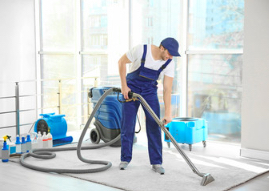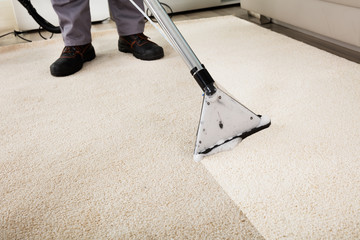Health Benefits of Clean Carpets
Clean carpets enhance a room’s appearance and make individuals feel more comfortable. Regular deep cleaning also prevents a buildup of unhealthy contaminants. Greasy stains are usually the most difficult to remove from a carpet. Mix a few drops of grease-cutting dish soap with water in a spray bottle and spray the stain. Read https://www.joondalupcarpetcleaners.com.au/ to learn more.
 A dirty carpet can really put a damper on the overall look and feel of any home, especially in a living room or bedroom. Regular cleaning helps remove dirt marks and staining, extending the life of your carpets while adding a fresh, clean appearance to your living space.
A dirty carpet can really put a damper on the overall look and feel of any home, especially in a living room or bedroom. Regular cleaning helps remove dirt marks and staining, extending the life of your carpets while adding a fresh, clean appearance to your living space.
The type of carpet and fibers you choose may also determine how often you need to clean it. Light-colored carpets tend to show dirt more readily than dark ones, and the pile of your carpet can also affect how easily it shows stains. Liquid spills should be blotted as soon as they occur, rather than rubbed into the carpet, to prevent staining and wicking.
Many common household cleaners can be used on carpet stains. Tarbox recommends using a nontoxic solution of white vinegar and water, or an organic cleaner such as Eco-88 or ZorbX. Spray the solution directly onto the stain, and blot it thoroughly with a white cloth or paper towels. Repeat as necessary until the stain is removed.
You can also make a homemade carpet cleaner by mixing equal parts baking soda and salt. Sprinkle the mixture over a carpeted area, wait several hours, then vacuum up the dirt. This works well on a variety of different types of carpets, and the baking soda will absorb odors as well.
Getting your carpets cleaned by a professional is an important part of good maintenance. Professional carpet cleaners have special shampoo formulas and high-powered equipment that can get to the roots of your carpeting to remove embedded dirt, pollutants, pet dangers, bacteria and more. Regularly cleaning your carpets can help alleviate breathing problems, such as asthma and snoring.
It’s easy to overlook the importance of keeping your carpet clean, but it should be a regular part of your home maintenance routine. Besides enhancing the look of your home and extending its lifespan, regular cleaning can also boost your family’s health. By eliminating dangerous pollutants, stains and debris, clean carpets can help improve your home’s air quality and enhance the enjoyment of your family’s time together.
Carpets are great for hiding dirt, but that doesn’t mean they don’t contribute to poor indoor air quality (IAQ). Carpet acts as a filter trapping various pollutants inside its fibers. These pollutants may include dust mites, pet dander and hair, mold spores, bacteria, and chemicals. Regular vacuuming and professional carpet cleaning help prevent these pollutants from recirculating in the air, improving IAQ and reducing health risks associated with such pollutants.
According to research, air above carpet contains fewer allergens and germs than the same area above hard surfaces. This is a result of carpet acting as a trap and holding these particles until they are removed via vacuuming or cleaning. However, this only works when the carpet is properly maintained and cleaned regularly. Vacuuming and spot removal on a daily basis, along with frequent extractions helps maintain proper IAQ.
IAQ is important because it impacts human health through respiratory symptoms, cardiovascular diseases, and lung cancer. It is also linked to productivity and mood. Poor IAQ can lead to fatigue, headaches, and nausea. It can also contribute to the development of other chronic diseases, such as heart disease and stroke.
Carpet plays a critical role in IAQ by absorbing, trapping, and releasing volatile organic compounds (VOCs) and particulate matter (PM). VOCs are emitted by various sources, including furniture, household cleaners, and paint. They can also be generated by a number of natural processes, such as photochemical reactions and decomposition of organic matter. PM refers to a variety of inhalable solid and liquid particles, ranging from coarse (PM10) to fine (PM2.5) particles.
The best way to minimize VOCs and PM is to avoid synthetic chemical-based products and instead use eco-friendly cleaners made from natural ingredients, such as white vinegar, borax, and baking soda. Always follow the instructions on the product you choose, as well as test a small amount of the cleaner in an inconspicuous area to ensure it doesn’t affect or damage your carpet. It is also a good idea to use the blotting technique when cleaning up spills, rather than rubbing, as this will help ensure that the stain is fully absorbed and doesn’t release into the air.
The average carpet can last anywhere from five to 15 years, depending on factors such as wear and tear, the number of occupants in a household, and where it’s located. However, you can make your carpets last longer by taking preventative measures, including getting regular professional cleanings and using a dehumidifier to reduce the amount of moisture in the air.
The single biggest threat to carpets’ lifespan is regular dirt, dust, and debris accumulation. Vacuuming frequently (ideally once a week, but as often as every day if you have pets or messy kids) is one of the most effective ways to prolong their life. When you vacuum, be sure to use a powerful suction setting and a rotating brush attachment. This will help to remove the deep down dirt particles that most vacuum cleaners leave behind.
Another way to extend a carpet’s lifespan is to move your furniture around in carpeted rooms occasionally, if possible. This will change the pattern of foot traffic and help to prevent those pesky indentations where heavy furniture has been sitting for too long.
Keeping your home free of pet urine and other smelly spills is also crucial to a carpet’s longevity. If you notice any accidents, be sure to clean them up right away with a spot cleaner like club soda or Folex. Always test a cleaning product on an inconspicuous area to ensure that it won’t affect your carpet’s color.
Another way to extend your carpet’s life is to get rid of mold and mildew before it spreads. Mold and mildew can damage the underlying padding and lead to a weakened and damaged carpet. If you have a problem with these organisms, try to keep humidity levels at a minimum and blot the affected area of your carpet with dry towels to absorb excess moisture. Then, place several paper towels over the damp area and weigh them down with a heavy object until it’s completely dry. Mold and mildew can also be caused by improper cleaning techniques, so be sure to use a professional method such as steam cleaning when tackling this issue.
The health benefits of clean carpets go beyond just reducing allergens. Having fresh and tidy floors also helps you rest better at night, which in turn promotes mental health. If you suffer from allergies, it means less sneezing and watery eyes. Moreover, cleaning tasks like vacuuming offer physical activity that reduces stress levels. This is especially true when you hire a professional cleaner, who does the job quickly and efficiently.
Dirty carpets often become home to a wide variety of microorganisms, including bacteria, fungus, and dust mites. Some of these can cause serious health problems if they are inhaled. Some people are more sensitive to these organisms than others, and if they have a weak immune system, they can even get sick. Regular carpet cleaning prevents these organisms from growing and spreading, keeping the entire family safe.
When you notice that your carpets have a pungent odor, it usually means that they are overdue for a deep cleaning. You can remove these odours without renting a steam cleaner by mixing baking soda with warm water. Pour this mixture over the carpet, and then use a brush or scrub brush to rub it into the fibres. Let the solution sit for a few hours to let the baking soda absorb odors and other contaminants. Then vacuum the carpet.
Other signs that your carpets are due for a deep cleaning include traffic lanes, which are dark lines that appear in main pathways and other high-traffic areas. This is caused by dirt being trampled into the fibres over time, and you can stop it from happening by vacuuming regularly.
You can also reduce the number of stains and dirt spots by regularly using a scrub brush and a mix of warm water and white vinegar. Combine the ingredients in a spray bottle, and then apply it to the carpet, scrubbing as you go. Make sure to wear gloves when handling this mixture, as it may contain borax, which is an irritant. Rinse the area once you’re done, and then let it dry completely.
If you’re planning on moving to a new home, it’s important to deep clean your carpets before the move. This way, you can be sure that no debris from the previous tenants remains hidden in your new carpets. You can also use packaging tape or lint rollers to pick up pet hair and other contaminates from the floor, which will help cut down on the amount of time you spend cleaning when you move in.

